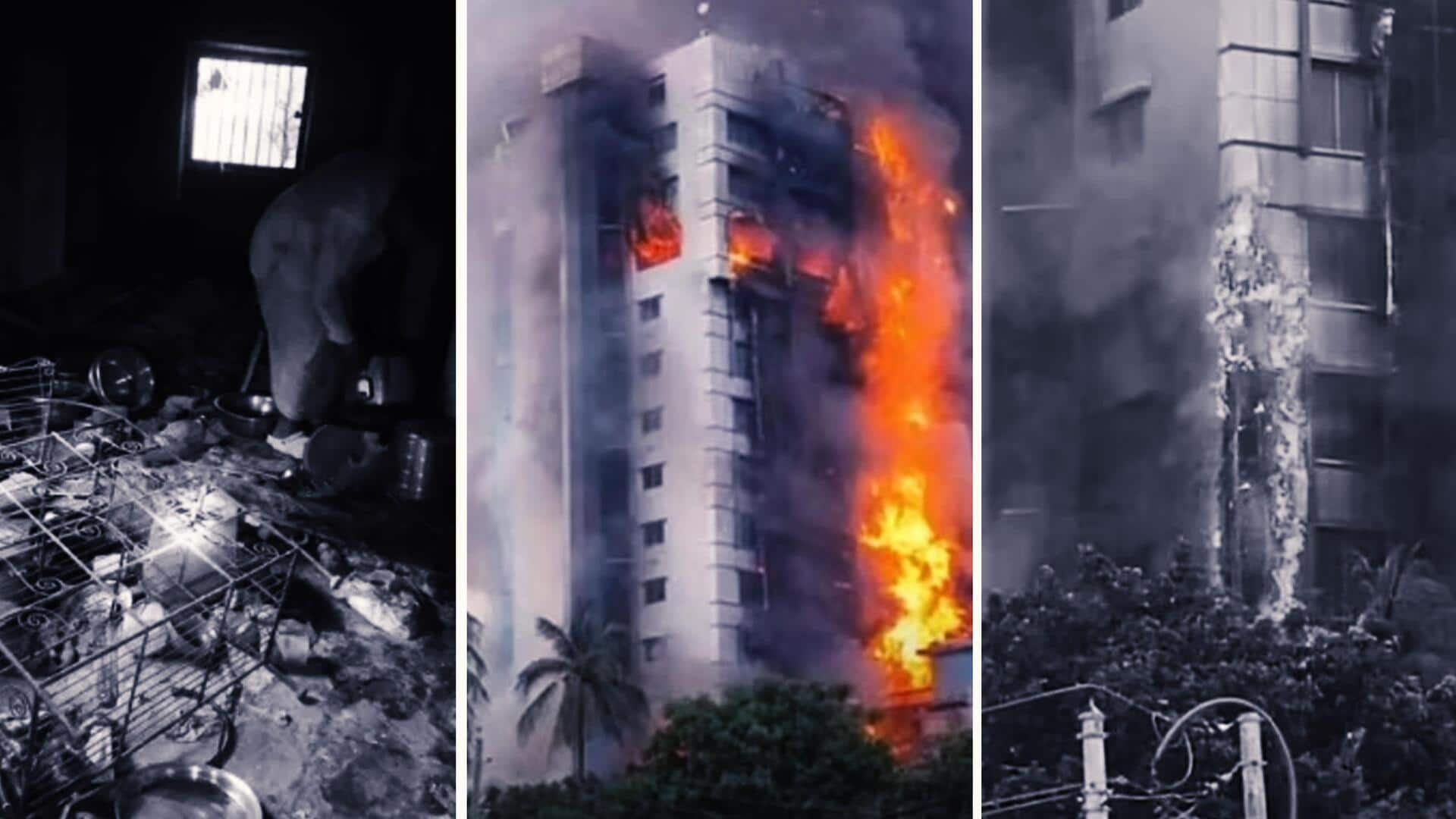
Bangladesh crisis: Mob sets hotel on fire; 24 burnt alive
What's the story
At least 24 people, including an Indonesian national, were burnt alive by a mob amid protests in Bangladesh on Monday night, fresh reports said. The victims were primarily boarders at the Zabir International Hotel, owned by district Awami League general secretary Shahin Chakkladar. This incident took place in Joshor district after Prime Minister Sheikh Hasina's resignation and subsequent departure from the country amid a violent student-led uprising.
Context
Why does this story matter?
Hasina fled the country after resigning amid violent protests. She arrived at Hindon Air Force base in Ghaziabad, Uttar Pradesh on Monday night, where she was received by National Security Advisor Ajit Doval. Reports indicate that Hasina may seek political asylum in London, though her son has dismissed these claims. Meanwhile, Foreign Minister S Jaishankar said that India is giving time to Hasina to "recover" and let them know about her next move.
Nationwide unrest
Widespread vandalism targets Awami League properties
Notably, the unrest had spread throughout Bangladesh, with residences and business establishments of numerous Awami League leaders and activists coming under attack. An unidentified mob, reportedly opposed to the Awami League regime, set the ground floor of Chakkladar's hotel on fire, which rapidly engulfed the upper floors on Monday. Similar acts of violence have been reported nationwide as angry mobs vandalized properties belonging to many Awami League leaders and activists, including their central office on Bangabandhu Avenue in the capital.
Religious violence
Hindu properties attacked
In the aftermath of Hasina's departure, hundreds of Hindu houses, businesses, and temples have been vandalized, reports said. The Bangladesh Hindu Buddhist Christian Unity Council (BHBCUC) reported that between 200 and 300 primarily Hindu homes and businesses have been damaged since Monday. Additionally, 15 to 20 Hindu temples were also targeted. Rana Dasgupta, the general secretary of BHBCUC, stated that up to 40 people have been injured in these incidents, albeit not seriously.
Leaders' response
Khaleda Zia's statement on violence
Former Prime Minister Khaleda Zia voiced her concerns over the escalating violence, vandalism, and looting of state resources amid the student uprising. During a meeting with Maulana Mamunul Haque, secretary general of Bangladesh Khilafat Majlis, Zia stated, "Our state's resources are being wasted. This country is ours; we have to build this country."
Leadership transition
Nobel laureate Muhammad Yunus to lead interim government
Nobel Peace Prize laureate and economist Muhammad Yunus has been appointed to lead the interim government in Bangladesh. President Mohammed Shahabuddin made the appointment after holding meetings with student leaders and chiefs of the three military services. The student leaders had expressed their preference for Yunus as the chief adviser to the interim government, a role which he has agreed to take on, according to a spokesperson for Yunus.
Explained
Bangladesh political crisis
The student protests—ongoing since July—initially called for the abolition of civil service job quotas but have since grown into a broader anti-government movement. The unrest stems from a controversial quota system that reserves up to 30% of government jobs for relatives of veterans from the 1971 independence war. Protesters argue that this system is discriminatory and benefits former PM Hasina's Awami League party.